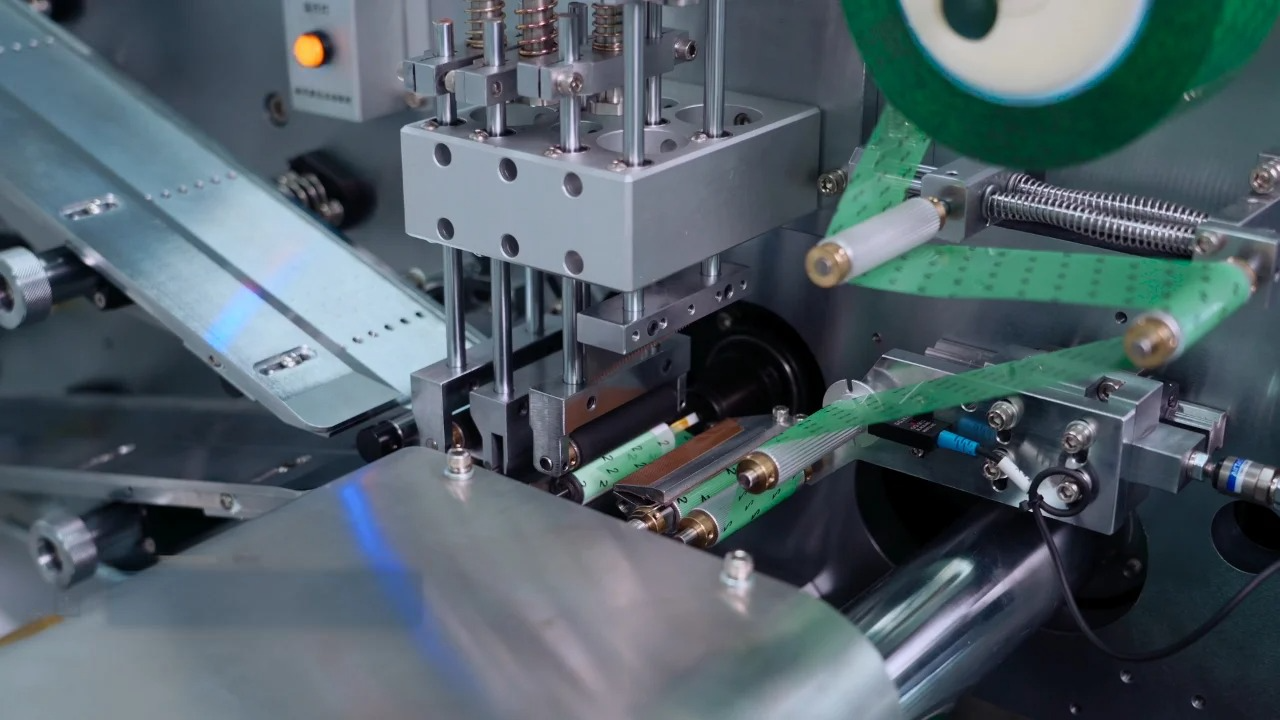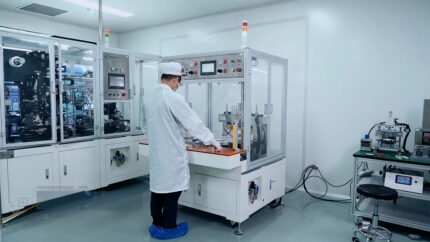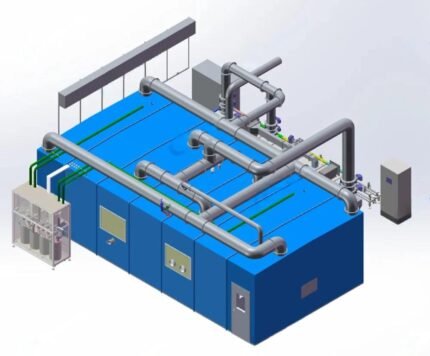Lithium-ion Cylindrical Battery Cell Laboratory Pilot Line Solution
Mikrouna Cylindrical Cell Pilot Line for University and R&D laboratory (video attached below):
Cell short circuit test; Tab welding; Assembly of rolling groove; Vacuum baking; Vacuum injection; Standing; Cover (or Closing, if referring to the action of closing the battery); Laser welding cap; Cylindrical sealing
The cylindrical battery experimental line is an important facility for the research and development and production of cylindrical batteries, mainly used for processes such as cell short circuit testing, tab welding, assembly rolling, vacuum baking, vacuum filling, standing, closing, laser welding caps, and cylindrical sealing. This experimental line is commonly used to evaluate and optimize the performance of cylindrical lithium-ion batteries such as 18650, 21700, and other models.
Basic functions of cylindrical battery experimental line
Cell short circuit test: detect the reaction and safety of the battery under short circuit conditions.
Tab welding: Connect the positive and negative electrodes of the battery to the external circuit to ensure good electrical connection.
Assembly of rolling groove: Precisely assemble the various components of the battery to ensure structural stability and sealing.
Vacuum baking: Baking the battery in a vacuum environment to remove internal moisture and impurities.
Vacuum injection: inject electrolyte into the battery to ensure its normal operation.
Standing: Let the battery stand for a period of time after filling with liquid to ensure uniform distribution of electrolyte.
Cover: The cover of the closed battery protects the internal structure.
Laser welding cap: use laser technology to weld the battery cap to ensure sealing.
Cylindrical sealing: The final sealing process is performed on the battery to complete the entire production process.
Application scenarios of cylindrical battery experimental line
The cylindrical battery experimental line is widely used in new energy vehicles, energy storage systems, portable electronic devices and other fields. With the rapid development of the new energy vehicle market, cylindrical batteries are favored for their high energy density and long life. The existence of experimental lines enables battery manufacturers to conduct in-depth research on new materials, processes, and technologies, continuously optimize product performance, and enhance market competitiveness
FAQ
Q: What are the unique technical features of Mikrouna’s lithium-metal solid-state battery equipment?
A: Our equipment employs advanced solid-state electrolyte preparation technology, enabling high-precision membrane deposition that ensures uniformity and stability of the electrolyte membrane. Additionally, it boasts efficient electrode coating and packaging processes, enhancing battery performance and consistency.
Q: How efficient is Mikrouna’s lithium-metal solid-state battery equipment in production?
A: Our equipment is meticulously designed and optimized for high production efficiency while maintaining product quality. Through automation control and advanced process flows, we significantly reduce production cycles to meet large-scale market demands.
Q: How is the stability and reliability of the equipment ensured?
A: We use high-quality components and materials, subject them to rigorous quality inspections. Extensive reliability testing and optimization are conducted during R&D, complemented by comprehensive after-sales service and technical support to guarantee long-term stability and reliability.
Q: What are the energy-saving advantages of Mikrouna’s equipment?
A: Our equipment adopts an energy-efficient design concept, effectively reducing energy consumption during operation. By optimizing the power system and energy management, we minimize unnecessary energy waste, helping users lower production costs.
Q: Are the operation and maintenance of the equipment complex?
A: We strive to provide user-friendly equipment with a simple and intuitive operation interface, requiring minimal training for operators. Detailed maintenance manuals and training services are also provided to facilitate easy routine maintenance and care.
Q: How does Mikrouna ensure the quality of lithium-metal solid-state batteries produced by its equip
A: The equipment is equipped with high-precision detection and monitoring systems to real-time monitor key production parameters. Coupled with a rigorous quality control system, every batch of products undergoes strict testing to meet high-quality standards.
Q: What about customization services for the equipment?
A: We offer customized equipment solutions tailored to clients’ specific needs and production scales. Whether for small R&D lines or large-scale production lines, we can design the most suitable equipment configurations.
Q: What safety considerations have been incorporated into Mikrouna’s equipment?
A: The equipment features multiple safety protection mechanisms, including overvoltage and overcurrent protection, as well as fire and explosion-proof designs. Adherence to relevant safety standards and regulations throughout production ensures the safety of operators and equipment.
Q: How does Mikrouna handle equipment upgrades and replacements?
A: We continuously invest in R&D, keeping abreast of industry trends and market demands to upgrade and improve our equipment. Upgrade services are provided to ensure that clients’ equipment remains advanced and competitive.
Q: Compared to competitors, what are the advantages of Mikrouna’s equipment?
A: Our equipment excels in technological innovation, performance stability, production efficiency, customization services, and after-sales support. By continuously enhancing our technical capabilities and service levels, we provide clients with more valuable lithium-metal solid-state battery production equipment.
No PDF available for this product.




Reviews
Clear filtersThere are no reviews yet.